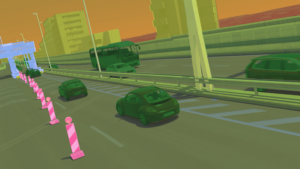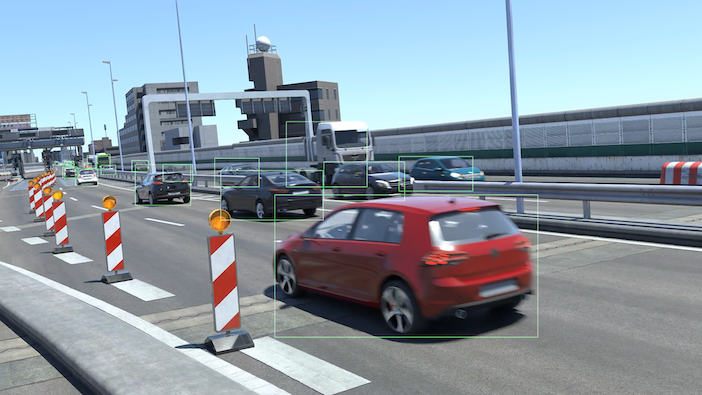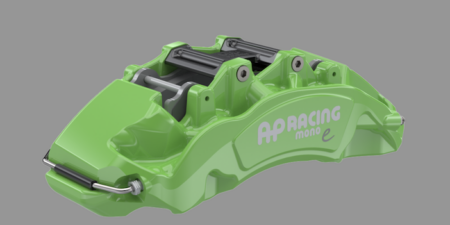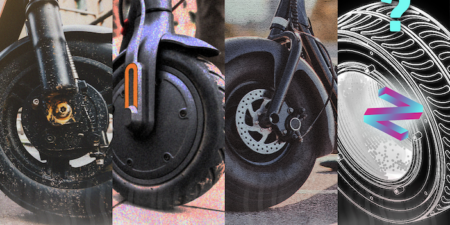Automotive simulation specialist, rFpro, has launched AV Elevate, a package designed to accelerate the development of autonomous vehicles (AVs). The company says the software enables the tuning of sensors, the training of perception and control algorithms, and testing of the full AV technology stack. The platform provides both closed-loop perception testing and the creation of engineering-grade synthetic training data.
“AV Elevate is a game-changing simulation platform, it is the most advanced solution to enable the complete AV technology stack to be tuned, trained and tested,” said Matt Daley, technical director at rFpro. “For the first time, AV developers can confidently reduce their reliance on real-world testing, instead subjecting systems to AV elevate’s highly accurate synthetic data. Now, testing and development can be massively and cost-effectively scaled like never before, removing the biggest barrier to the advancement of AVs.”
rFpro has integrated several new technologies to its existing platform to create AV Elevate, including LiDAR, radar and camera models, a new simulation manager to define the full vehicle sensor suite and create base test scenarios, and compatibility with High Performance Computing (HPC) in the Cloud to conduct and scale testing rapidly.
Tuning sensor systems
AV Elevate integrates high-fidelity sensor models for all major AV sensor types and enables installation choices and configurations to be tuned and optimised. The platform’s synchronous architecture allows for hundreds of sensors to be tested, enabling sensor fusion testing to a high level of accuracy.
Included within the simulation solution is a library of standard sensor models alongside digital twins of commercially available sensors. This allows development to progress before a physical sensor exists, or enables OEMs to benchmark technologies against their competition.
Synthetic training data
In order to create training data, AV developers typically manually annotate each frame of video, LiDAR point or radar return to identify objects in the scene. According to rFpro this approach generally takes 20 minutes per frame and has a 10% error rate. The company says that AV Elevate automates this process using engineering-grade synthetic training data, meaning it is 100-times faster and 150-times more cost-effective than manual annotation, and is completely error-free.
Simple test scenario generation tools and automated variations

AV Elevate’s Simulation Manager provides a user-friendly way to set up and execute test scenarios simply and automatically. This allows large-scale simulations with multiple sensor systems to be created with ease.
The Simulation Manager can automate variations with both the vehicle model and the environment. For example, changes to the sensor types, positioning of sensors on the vehicle, traffic, pedestrians, time of day, weather conditions, street furniture, and obstructions. The manager quickly enables the creation of focused variations of the base scenario to be generated, creating hundreds of edge-case scenarios for testing. Users can create their own ever-increasing database of scenarios or connect to large external third-party databases.
Using the Cloud and HPC to rapidly scale testing
AV Elevate generates and subjects perception and control systems to a massive array of simulated driving scenarios to develop, train and test them. Due to AV Elevate’s synchronous architecture, the time required to complete tests is directly linked to the available computing power. As the platform is Cloud and HPC compatible, it allows users to flexibly and rapidly scale testing as required without requiring significant investment in internal computing hardware.
Leveraging rFpro simulation
At the core of AV Elevate is rFpro’s physically modelled virtual environments and ray-tracing rendering technology. Its library of more than 180 real-world digital twins provides an accurate and diverse virtual proving ground, with every element in the scene physically modelled with realistic material characteristics and a road surface model accurate to 1mm.
The ray-tracing rendering technology replicates the nuances of how a vehicle’s sensor system perceives the world. The multi-path technique simulates the huge number of light and electromagnetic sources and reflections that happen around a sensor. It generates high-fidelity data for sensors and includes phenomena such as motion blur and rolling shutter effects.
“The purpose of AV Elevate is to help OEMs reduce their reliance on testing and data collection on public roads to significantly cut costs and accelerate development,” added Daley. “We believe our fully integrated simulation solution is the most accurate available and this gives manufacturers the confidence needed to make that move.”





